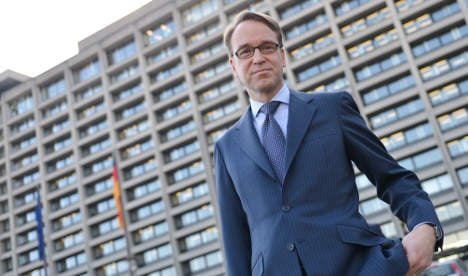Talking to the Süddeutsche Zeitung (SZ), Weidmann said that while Germany was currently in a strong economic position it faced a formidable task to remain competitive in the future.
“In the long term Germany faces considerable challenges – if you think about its ageing society, increasing competition from developing countries, and the Energiewende [the transition to renewable energy]” Weidmann told the SZ.
Due to the the country's population becoming ever older, Germany needs to replace its workforce if it is to maintain its current standard of living, he added.
Despite refugees posing a challenge to the country “this influx also provides opportunities which will be all the bigger the better we are at integrating these people into society and the job market in a long-term way.”
Weidmann's opinion was backed up by the United Nations Special Representative for International Migration, Peter Sutherland, on Wednesday who tweeted “The populations of many EU states need a crash course in demographics. Their people are aging and economies threatened.”
The populations of many EU states need a crash course in demographics. Their people are aging and economies threatened.
— Peter Sutherland (@PDSutherlandUN) September 16, 2015
Weidmann was also critical of the European Central Bank's (ECB) recent announcement that it will consider extending quantitative easing measures beyond September 2016.
“All this cheap money can't create sustainable growth and builds up ever greater risks for financial stability the longer it goes on,” he said.
The ECB has been buying government bonds since March to the tune of €60 billion per month.
Two weeks ago ECB president Mario Draghi said he would considered extending the measure beyond September 2016 if his growth goals for the euro zone still had not been met.



 Please whitelist us to continue reading.
Please whitelist us to continue reading.